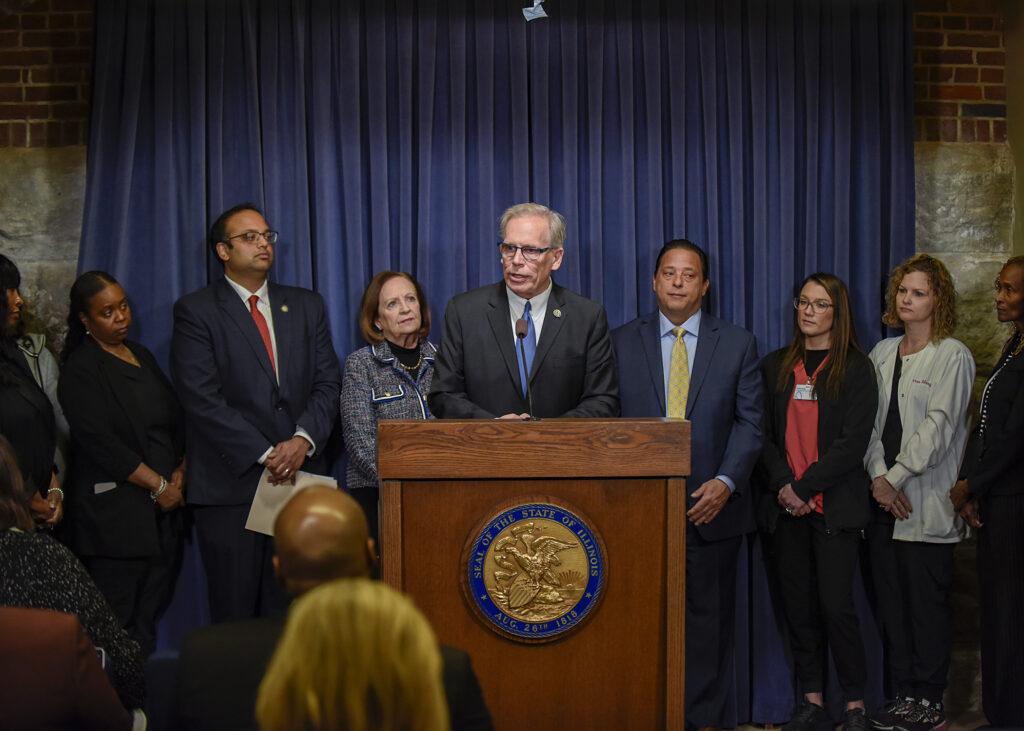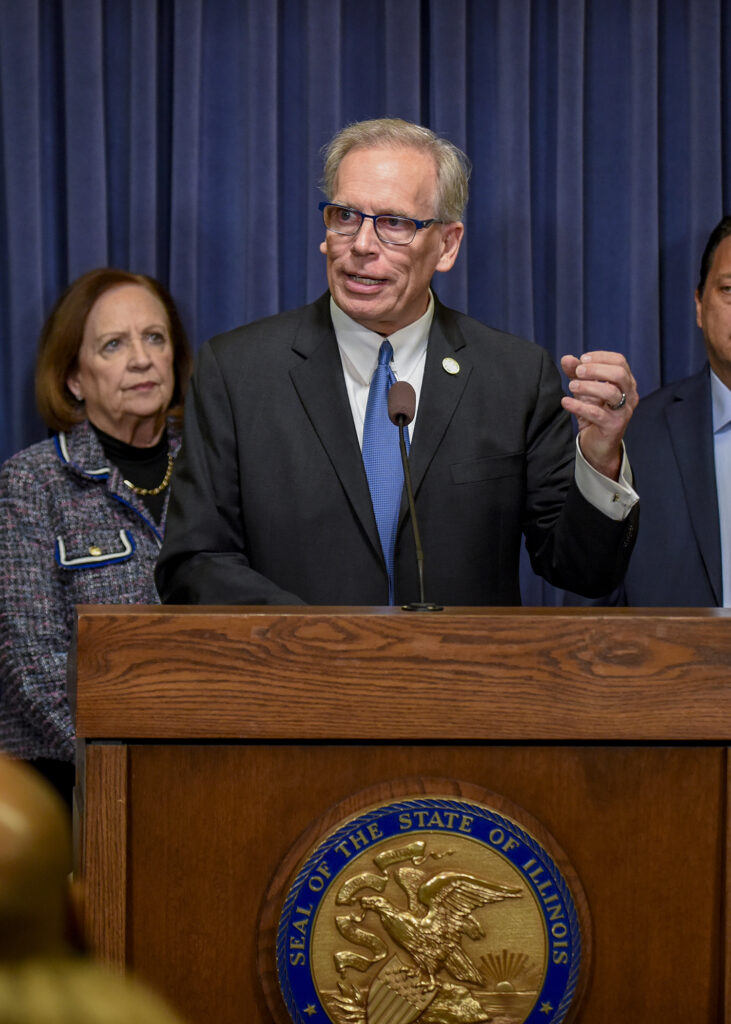Providers warn continued inadequate funding threatens access to care and deepens workforce crisis

SPRINGFIELD – A bipartisan group of lawmakers joined skilled nursing facility administrators and industry leaders at the Illinois State Capitol today to call for immediate action on Medicaid rate reform. With rising costs, staffing shortages, and more nursing homes at risk of closure, speakers urged the General Assembly to pass SB1606/HB2858, a measure that would update Medicaid reimbursement rates to reflect current economic conditions and bring an additional $200 million in federal Medicaid matching funds into the state.
The legislation, backed by the Health Care Council of Illinois (HCCI), comes at a time when nursing homes across the state are experiencing extreme financial strain. Since 2017, costs for essential services such as food and supplies have risen 30 to 50 percent, while Medicaid reimbursement rates have remained frozen at pre-pandemic levels.
“This is a critical moment for our seniors,” said Rep. Bob Rita (D-Blue Island), Chief House Sponsor of HB2858. “It’s the difference between ensuring they can age with dignity or leaving them with no safe option for their care. Illinois must step up and pass this legislation to keep nursing homes open and ensure residents continue receiving quality care.”
Since COVID-19, 31 skilled nursing facilities in Illinois have closed, and the state’s largest independent operator filed for bankruptcy in 2024. Lawmakers and providers say rural communities have been hit especially hard, with seniors having to travel further and further for care. Communities across the state have also been impacted by job losses as the nursing home industry serves as a major employer in Illinois, employing 120,000 people.
“We talk often about rural hospitals, but the rural long-term care crisis is just as real,” said Rep. Norine Hammond (R-Macomb). “When a nursing home closes in a small town, residents can’t simply go to the next town over. It means losing jobs, beds, and essential care in places that may never recover.”
In Chicago and surrounding areas, the impact is equally urgent.
“I represent the district with the highest concentration of nursing homes in the state,” said Sen. Ram Villivalam (D-Chicago). “These homes are lifelines for so many families. But they can’t survive on outdated funding. Equity in long-term care starts with fully funding the essentials our seniors need to stay healthy, secure, and connected to their communities.”
“We can’t expect 2025 care to be paid for with 2017 dollars,” said Sen. Dave Koehler (D-Peoria), Chief Senate Sponsor of SB1606. “The longer we wait to fix the reimbursement system, the more vulnerable our long-term care network becomes. It will be even harder to restore access in communities that lose it. This legislation is about protecting our seniors and the people who care for them.”

Sen. Dave Syverson (R-Cherry Valley) emphasized the broader implications for health care access and the economy.
“Underfunded nursing homes mean more seniors in hospitals instead of receiving long-term care, which is more expensive and less effective,” he said. “These facilities are not just care providers. They are major employers and cornerstones in their communities. We can’t afford to let them disappear.”
Industry leaders say the situation is dire. Staffing shortages remain widespread, with 84 percent of nursing homes nationwide struggling to hire, despite increased wages and sign-on bonuses. In Illinois, facilities are still operating with 8 to 10 percent fewer staff than before the pandemic.
“Our providers are doing everything possible to stretch their budgets and recruit workers, but the math no longer works,” said Matt Pickering, Executive Director of the Health Care Council of Illinois. “Without action, more homes will close, caregivers will lose jobs, and vulnerable residents will be left with fewer choices and no access to care close to home. SB1606/HB2858 is the first step toward real, sustainable solutions.”
At the press conference, administrators shared powerful stories from the frontlines of long-term care. Ambreen Qureshi, Vice President of Operations at Legacy Healthcare, spoke on behalf of the nearly 500 nursing homes represented by HCCI.
“We’re proud to provide person-centered, compassionate care but without sustainable funding, even the most dedicated providers are being stretched to their limits,” she said.
Kenya O’Neal, Administrator at Cedar Ridge Health and Rehab Center, shared the human impact of ongoing financial strain.
“I have a resident who enjoys eating ice cream with her dinner every night,” she said. “Recently, I had to stop and ask myself, can we still afford that? That’s a decision I never imagined I’d have to weigh.”
Both urged lawmakers to act swiftly this session to preserve access to care and protect quality of life for the state’s most vulnerable residents.
With bipartisan support and backing from providers across the state, lawmakers and industry leaders agree that Medicaid rate reform is not just necessary, it is urgent. Without swift action, more closures, job losses, and disruptions in care are inevitable. SB1606/HB2858 offer a practical path forward to stabilize long-term care in Illinois and ensure that seniors can continue to receive high-quality, compassionate care in the communities they call home.
To learn more, visit ProtectLongTermCare.com.
Click https://www.youtube.com/watch?v=v4LhjGu9Pfw for Senator Syverson’s comments during the press conference April 8 in the State Capitol.)

